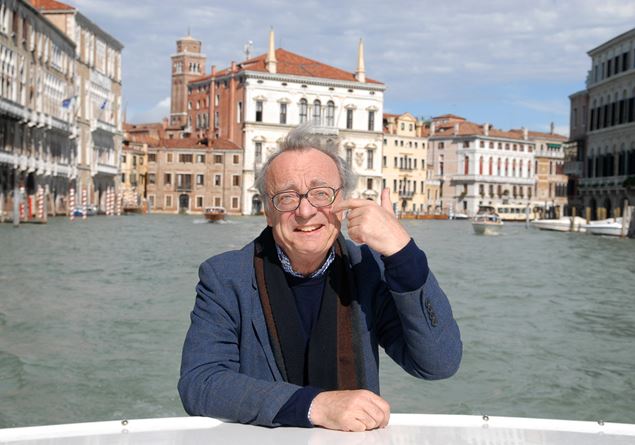With the death of Alfred Brendel, which took place in London, at 94, another piece of history of the pianism of the twentieth century leaves. Paliamo of a pianist who has been able to combine mind, heart and fingers in a rare balance: great analytical ability, for which he was rightly famous, but also poetic and technical sensitivity of high level. After the somewhat “random” studies (he did not have regular training in the Conservatory) and the improvement with Edwin Fischer, the high interpreter of the classics (especially Mozart and Beethoven) and the victory in the Busoni competition in 1949, at just 18 years old, embarked on a concert career that will take off especially in the 70s.
I keep a personal memory of one of his concert in Alba, just before the withdrawal from the concert activity (we are talking about 2006-2007): a beautiful execution of Kreisleriana of Schumann, of a restlessness and a poetry quintessence of German romanticism.
Brendel made himself known above all for his interpretations of the Viennese classics: Mozart (all Sonatas he is Concerts), Beethoven (the Sonatas he is Concertsengraved in the whole) and Haydn (feel his selection of Sonatasso rich in crackling humor, of continuous surprises and the ability to create a well -built narrative!), Schubert (was a champion of his Sonataswho helped to make known and appreciate in concert halls). But his repertoire was much wider and ranged from JS Bach to Modern. The Austrian pianist was also an excellent interpreter of some cornerstones of romanticism: in addition to the aforementioned Schumann, of Konzertstück of Weber (engraved with the direction of Claudio Abbado), in particular Liszt, who helped to get out of the cliche of the virtuoso “circus” to make it highlight the musical richness of brilliant and innovative composer. Are the first listening memories (from CD) that I have of Brendel: his Sonata of Liszt, thrown with impetus in all its titanic construction, i Concerts for piano and orchestra, an amazing Totentanz but also the Years of pilgrimageso rich in moods and romantic poems (there is also a beautiful video recording, where the Austrian pianist plays with the culpted finger for a small accident) and the last visionary pieces that already announce the twentieth century. And he did not even disdain the virtuosity pieces such as the transcriptions of Liszt from Opera, as documented an old (and surprising) incision created for Vox at the beginning of the sixties: real test benches for the purebred virtuous.
To all this is added a rare reflective capacity on music and piano, to which it has dedicated several essays (published in Italy by Adelphi). In short, a complete and all -round artist, who never needed to exhibit his skills, but all at the service of music, which – despite the “analytical” approach – always came out with fluidity and poetry, exciting the public every time. A gentleman of music, of other times, in these times where everything “packs” in a hurry.


